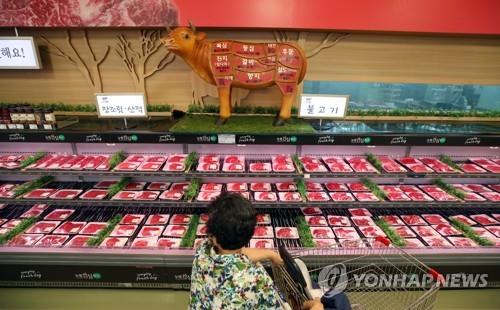- California Assembly OKs highest minimum wage in nation
- S. Korea unveils first graphic cigarette warnings
- US joins with South Korea, Japan in bid to deter North Korea
- LPGA golfer Chun In-gee finally back in action
- S. Korea won’t be top seed in final World Cup qualification round
- US men’s soccer misses 2nd straight Olympics
- US back on track in qualifying with 4-0 win over Guatemala
- High-intensity workout injuries spawn cottage industry
- CDC expands range of Zika mosquitoes into parts of Northeast
- Who knew? ‘The Walking Dead’ is helping families connect
S. Korea strengthens inspections of U.S. beef following mad cow case
SEOUL, Aug. 30 (Yonhap) — South Korea has stepped up sampling inspections of U.S. beef imports following a confirmation of a mad cow case, the government in Seoul said Thursday.
The Ministry of Agriculture, Food and Rural Affairs said it has increased sampling inspections carried out on American beef from the current 3 percent to 30 percent, after the discovery of bovine spongiform encephalopathy (BSE), commonly known as mad cow disease, from a 6-year-old cow in Florida.
The inspection involves opening the package, defrosting the meat and cutting into it for a detailed check.
The U.S. Department of Agriculture said Tuesday the cow tested positive for BSE during a routine surveillance, noting it “never entered slaughter channels” and presented no risk to the food supply or human health. The discovery was the six mad cow case in the U.S. since 2003.
Exposure to BSE can cause the fatal, brain-wasting Creutzfeldt-Jakob disease in humans.
Currently, U.S. beef that can be imported to Korea is restricted to cattle younger than 30 months with specified risk materials (SRM) removed in the slaughtering process.
South Koreans are sensitive to the mad cow disease issue, which led to nationwide protests against U.S. beef imports in 2008.












